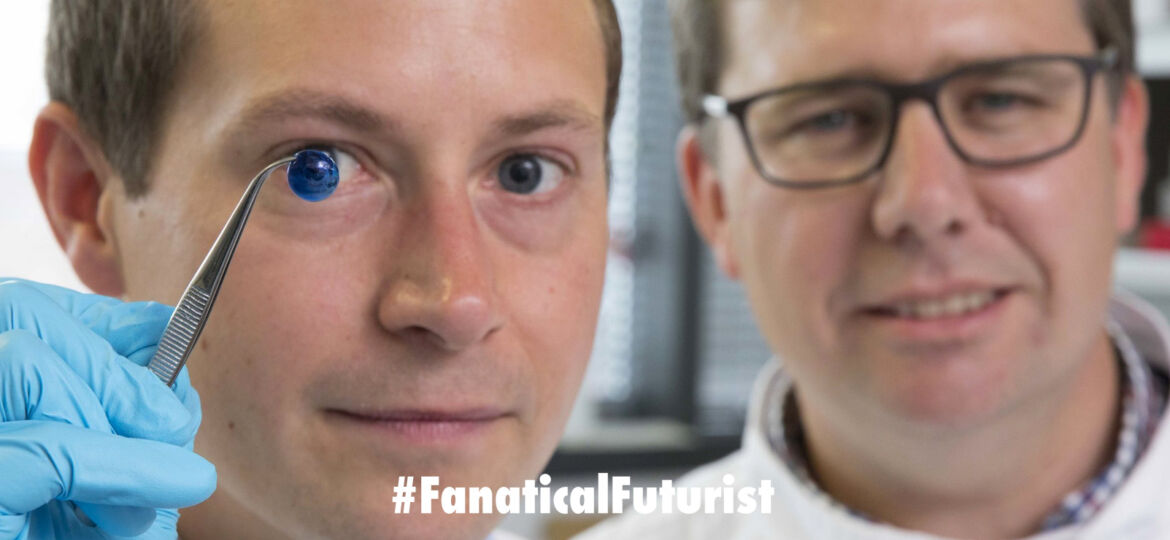
WHY THIS MATTERS IN BRIEF
Tens of millions of people a year go blind because of a lack of donor corneas, this work will, literally, give them a new outlook on life.
There are so many parts of the human body now that can be 3D printed that it’s small wonder we haven’t already printed out a whole person, and from brains, cartilage, and hearts to bones, kidneys and skin, it looks like everything has been getting the royal 3D printing treatment recently. Everything that is except for human corneas, which are crucial in helping people see properly – until now.
In a world first a team in the UK from Newcastle University have managed to 3D print working human corneas. The researchers mixed stem cells from a healthy donor cornea with alginate, a gel derived from seaweed, and collagen to create a Bio-ink solution that can be printed. Using a 3D printer, this bio-ink was extruded into concentric circles to form an artificial cornea, according to a paper published in Experimental Eye Research.
See how they did it
“What we have shows is that it is feasible to print corneas using co-ordinates taken from a patient’s eye,” said Che Connon, Professor of Tissue Engineering at Newcastle University, who led the work, before going on to add that the research will help with the worldwide shortage of corneas for transplant. The shortfall in corneas available from organ donors has also been compounded by the increasing popularity of laser eye surgery that unfortunately means corneas can’t be donated once the procedures been undertaken on a patient.
The cornea, the outermost layer of the human eye, has an important role in focusing vision. Currently around 10 million people worldwide every year need surgery to prevent corneal blindness, which is the forth leading cause of blindness in the world, as a result of diseases such as Trachoma. And around 5 million people annually lose their sight in both eyes because of “corneal dysfunction” that can be caused by disease or accident.
Professor Connon also said many teams across the world have been chasing the ideal bio-ink to make the process feasible and while some of them have managed to create flat tissue this was the first time shaped corneas had been produced.
“Our unique bio-gel – a combination of alginate and collagen – keeps the stem cells alive while producing a material which is stiff enough to hold its shape but soft enough to be squeezed out the nozzle of a 3D printer,” he said.
The 3D printed corneas produced at the University’s Institute of Genetic Medicine will now have to undergo further testing but it is hoped the technique could be in regular use within just time years time.
















